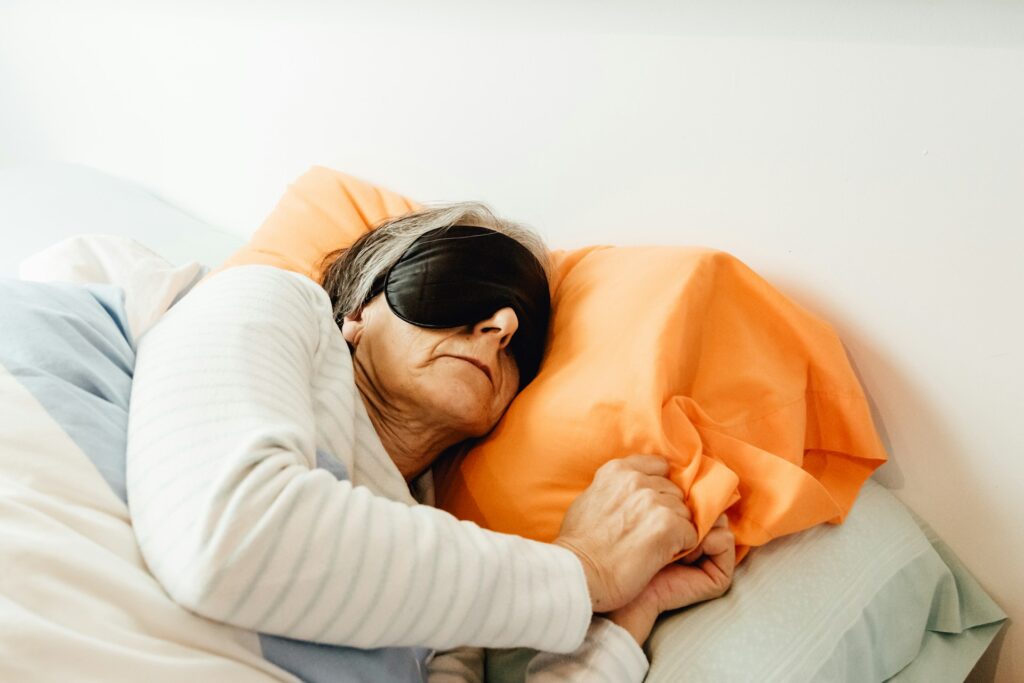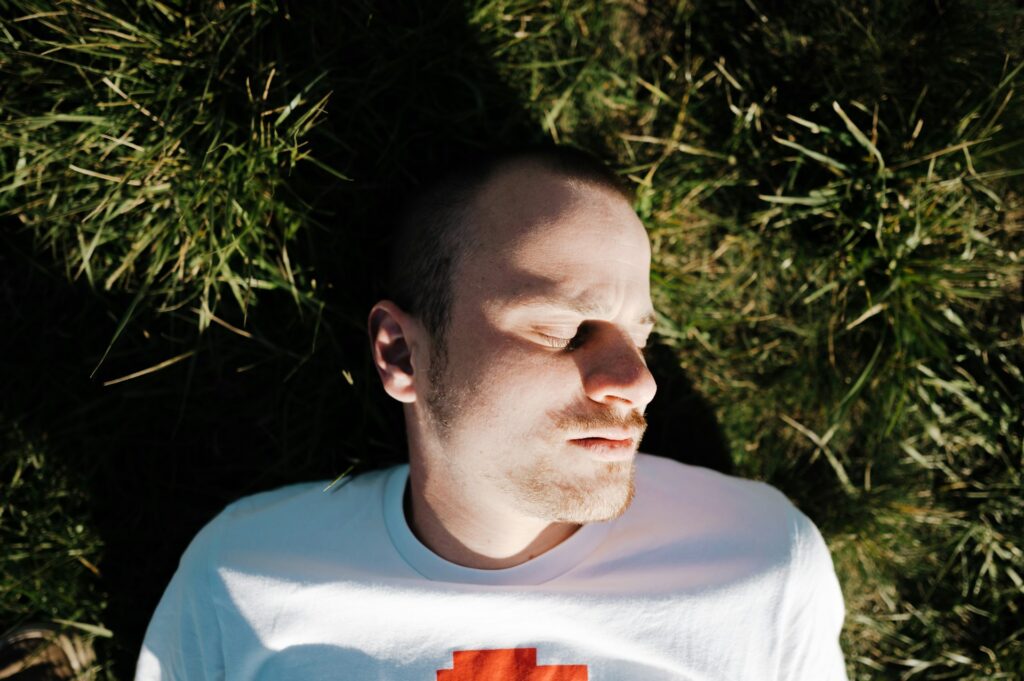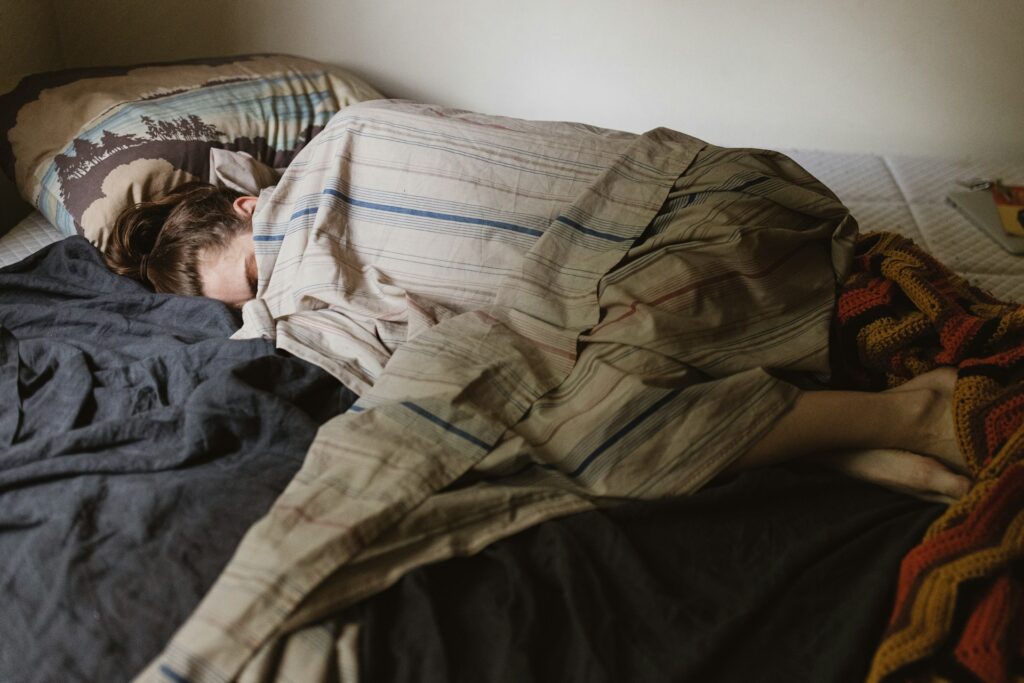You go to bed feeling stuck, and wake up with the answer—or, maybe an idea floats in during that dreamy not-quite-awake moment and feels oddly perfect.

It’s not a fluke. Sleep is where your mind gets a chance to reset, reorganise, and connect dots it didn’t have time to during the noise of your day. The more you understand what your brain’s doing behind the scenes, the more you can actually use it to your creative advantage. Here’s why some of your best thinking happens when you’re not awake, and how to get the most out of it as possible.
1. Your brain finally gets space to breathe.

During the day, your mind is constantly reacting—emails, conversations, to-do lists, noise. Sleep gives it a full reset. Once the world goes quiet, and you’re no longer managing input, your brain gets to do something deeper: process, reflect, and connect.
Having that mental breathing room is essential. It clears space for ideas that couldn’t land when you were overstimulated. Unsurprisingly, that’s often why new insights feel like they just “appeared” overnight—they had nowhere to land before.
2. You stop overthinking, which is a relief.

Problem-solving while wide awake often leads to mental loops. You try to force answers, rehearse possibilities, and end up stuck. Sleep shuts off that pressure. Your analytical brain powers down, and your subconscious takes the wheel for a while. In that relaxed state, your thoughts aren’t being filtered through stress or perfectionism. That change opens the door for weird, intuitive connections—and those are often the ones that lead to your most original ideas.
3. Dreams help you think outside the box.

Dreams are your brain’s way of playing without rules. Logic takes a back seat, and strange imagery, metaphors, and unlikely scenarios start forming. It’s your creativity without boundaries. Even if the dreams themselves make zero sense, the emotional themes or fragments you wake up with can spark new perspectives. There’s value in letting your mind go weird—it often leads you to places you wouldn’t consciously choose.
4. Sleep helps sort and remix your memories.

During REM sleep especially, your brain is sorting through the day—replaying, tagging, filing. However, it also reorders things. Two unrelated memories might accidentally connect. That little neural mix-up is sometimes where your most surprising ideas come from.
You might not realise it, but your brain’s working the night shift, combining data you didn’t know mattered. That’s why you might wake up with a solution that pulls from something totally random, and somehow still works.
5. You’re more intuitive during and after sleep.

When your rational mind quiets down, your intuition steps in. That gut feeling or inner knowing becomes clearer without all the noise. It’s why you might wake up feeling oddly sure about something you couldn’t decide on the day before. Sleep gives your emotional brain time to catch up. So, instead of calculating your way through a decision, you get to feel your way through it, and often land in a better spot because of it.
6. That half-asleep state is a creative goldmine.

There’s a sweet zone between sleeping and waking—when you’re not fully alert but not fully dreaming either. It’s hazy, but creative. Ideas often float up during that in-between time, before your logical brain kicks back in. If you’ve ever had a strange sentence or image flash through your mind right as you woke up, pay attention. That’s often your brain handing you something before the filters come back online.
7. You stop editing yourself.

Creativity dies in self-censorship. When you’re awake, you often block your own ideas before they’ve had a chance to breathe. But asleep? You’re not judging. You’re not worrying if it’s dumb or impractical. You’re just letting things surface. That lack of internal resistance means more raw, unfiltered thoughts can break through. They might be messy at first, but inside them is something you probably wouldn’t have dared to think in daylight.
8. Letting go helps you solve things faster.

When you’re stuck, stepping away is often the most productive thing you can do. And sleep is the ultimate step-away—it’s surrender. You let go, and your brain starts solving from a whole different angle. That’s why people say to “sleep on it.” It works. The answer might not come because you worked harder—it comes because you finally stopped trying so hard to find it.
9. Your emotional clarity resets overnight.

Things always feel heavier at night when you’re tired and your brain’s overstimulated. But after sleep, your emotions often settle. You can see what actually matters and what was just noise or anxiety talking. Waking up with emotional distance can help you access clearer, more grounded thinking. In that fresh perspective, new ideas tend to rise more naturally.
10. You can train your brain to work on ideas overnight.

If there’s something you’re stuck on, try asking yourself a question before bed—not in a panicked way, but with gentle curiosity. Just put the topic in your mind, then let it go. Your brain often keeps working on things in the background, especially if you give it permission. And if you keep a notebook nearby to catch whatever pops up in the morning, you’ll start building a little bridge between your sleeping brain and your creative one.


